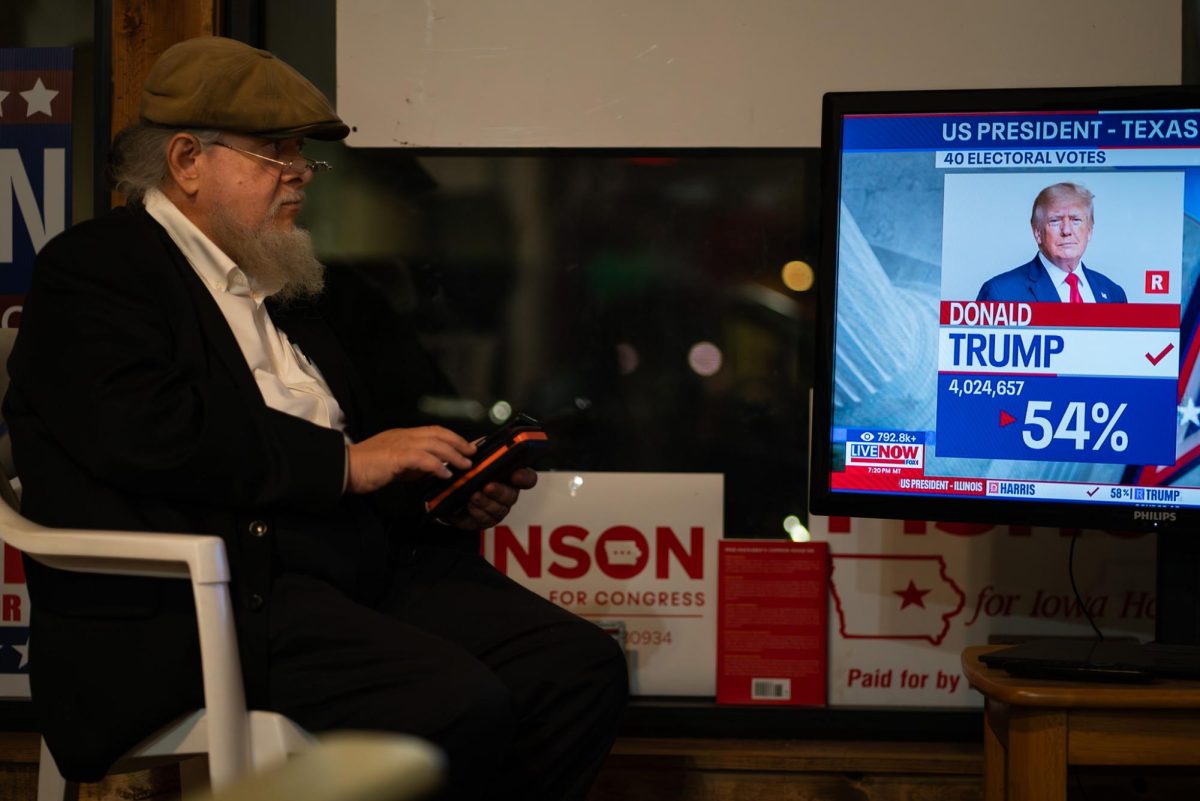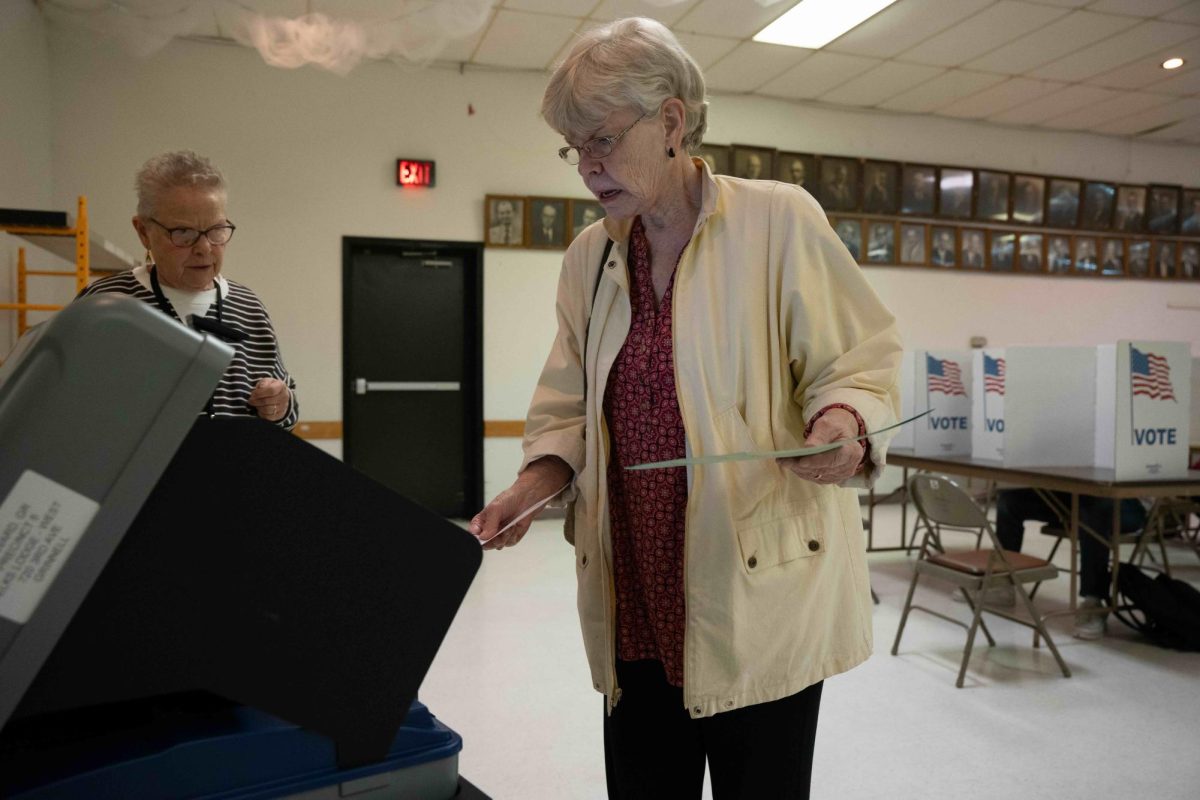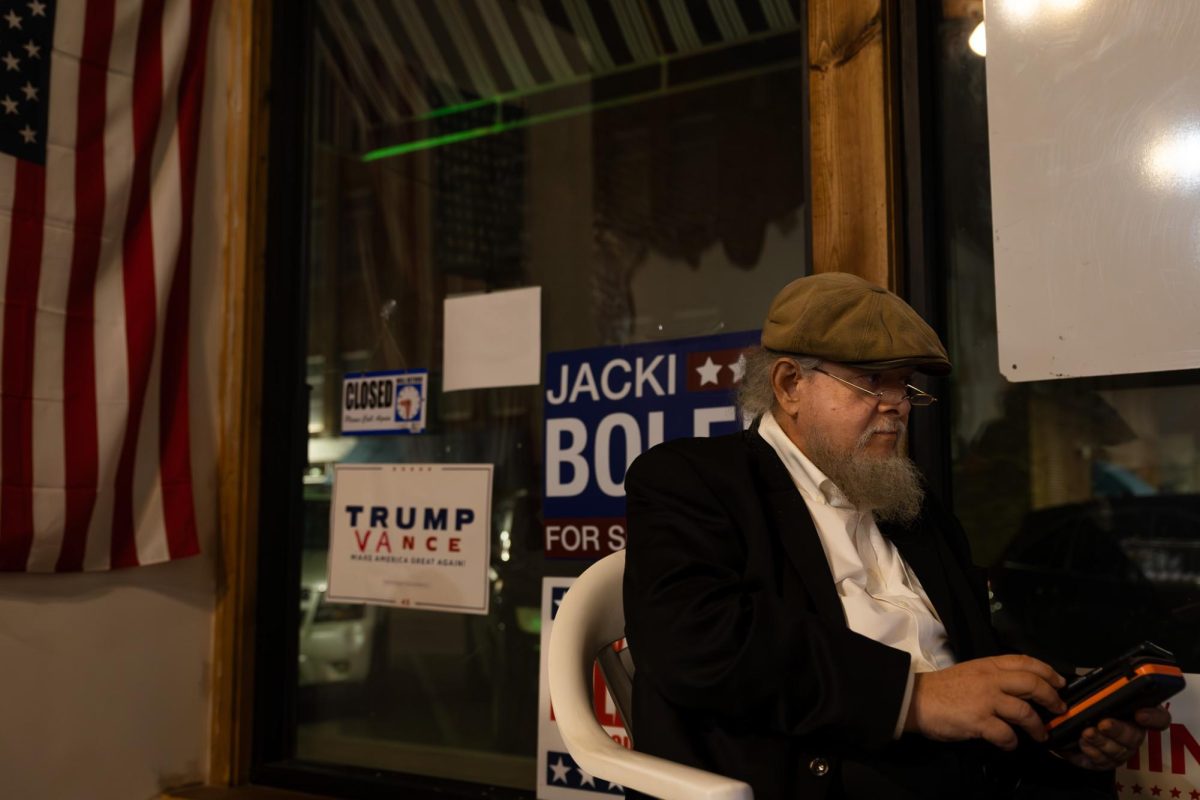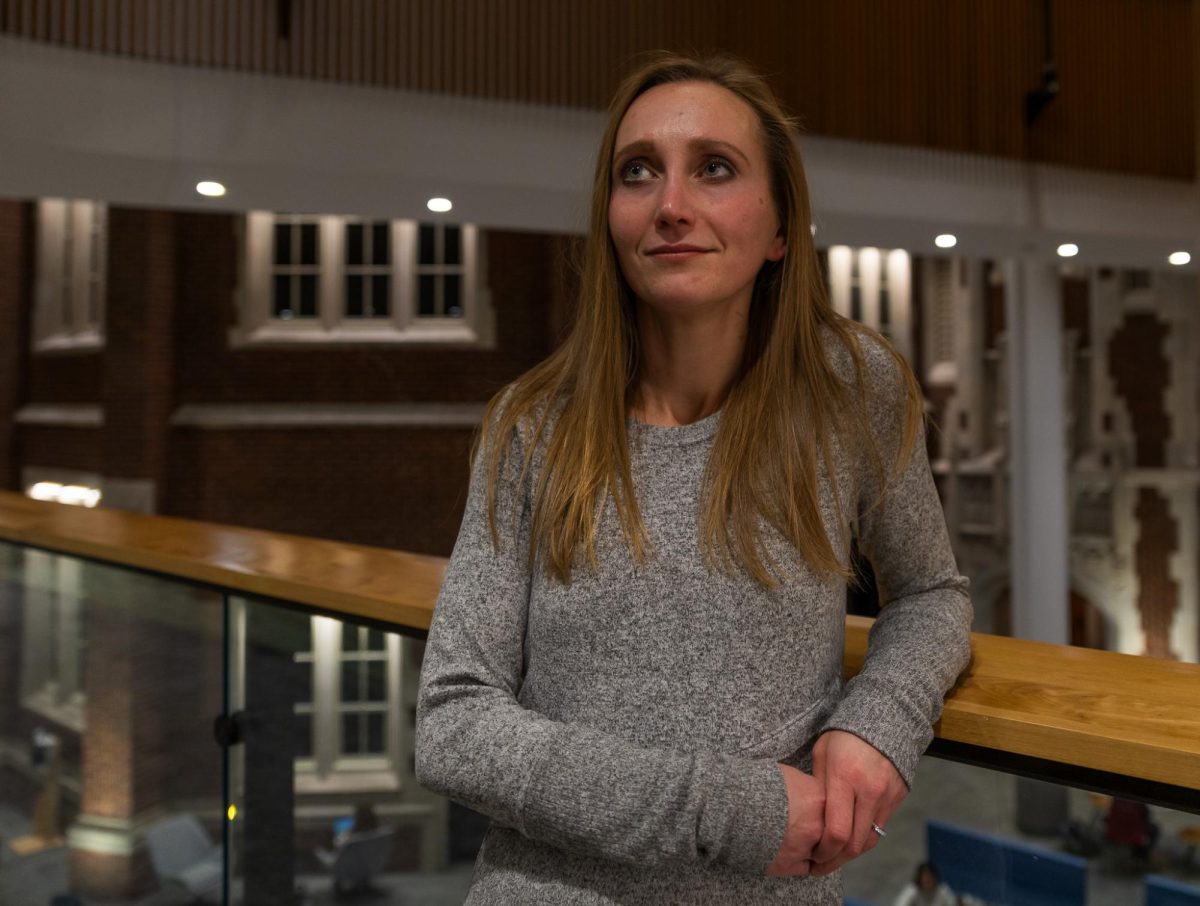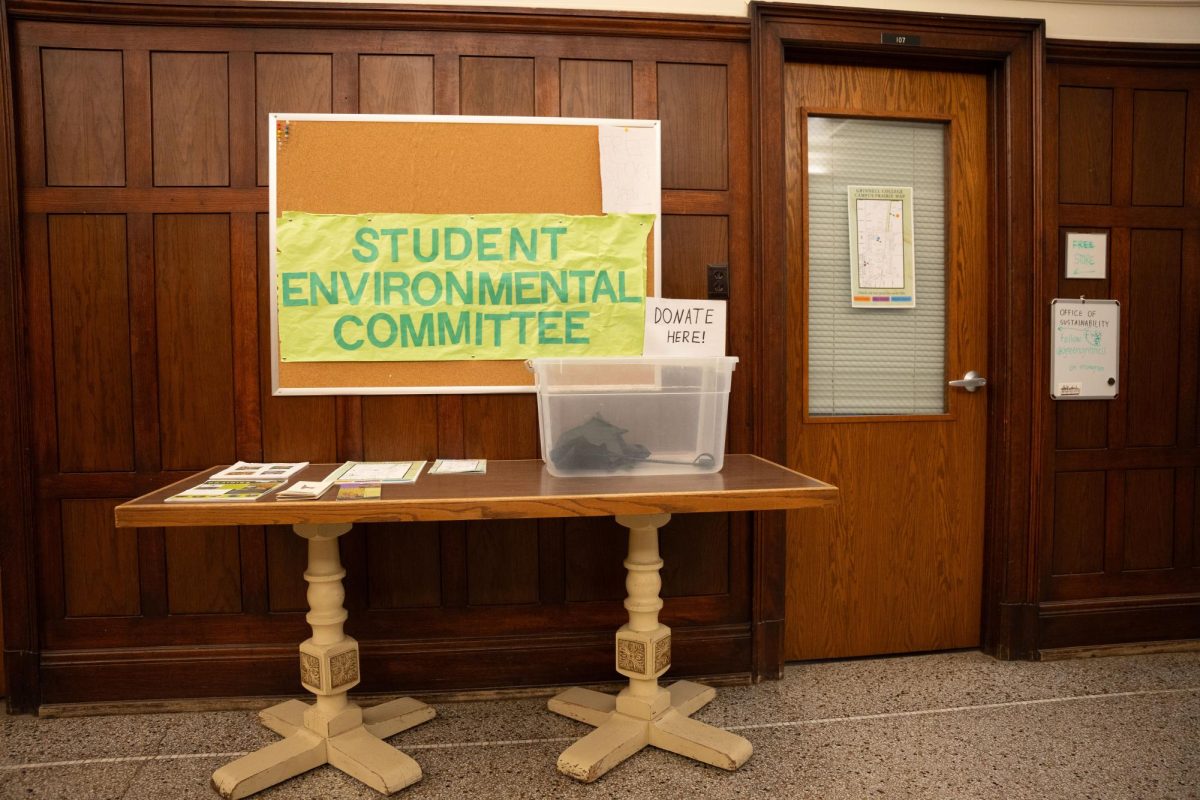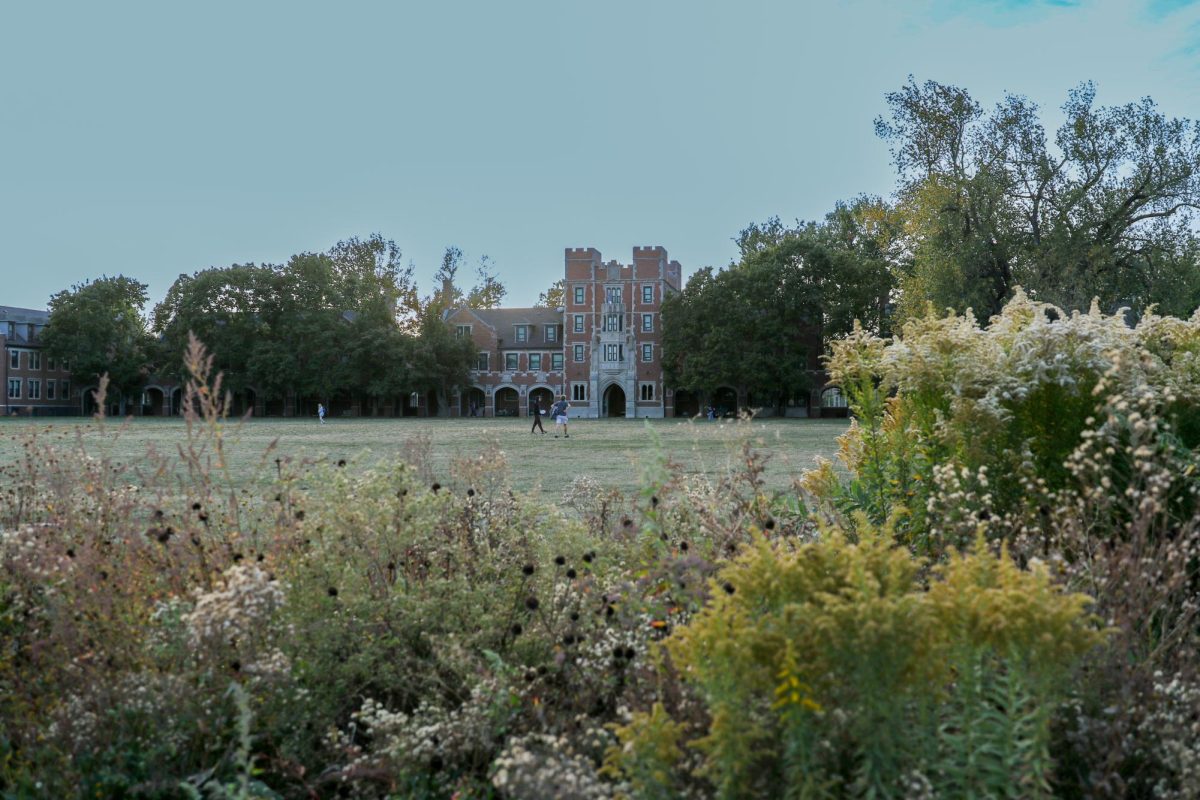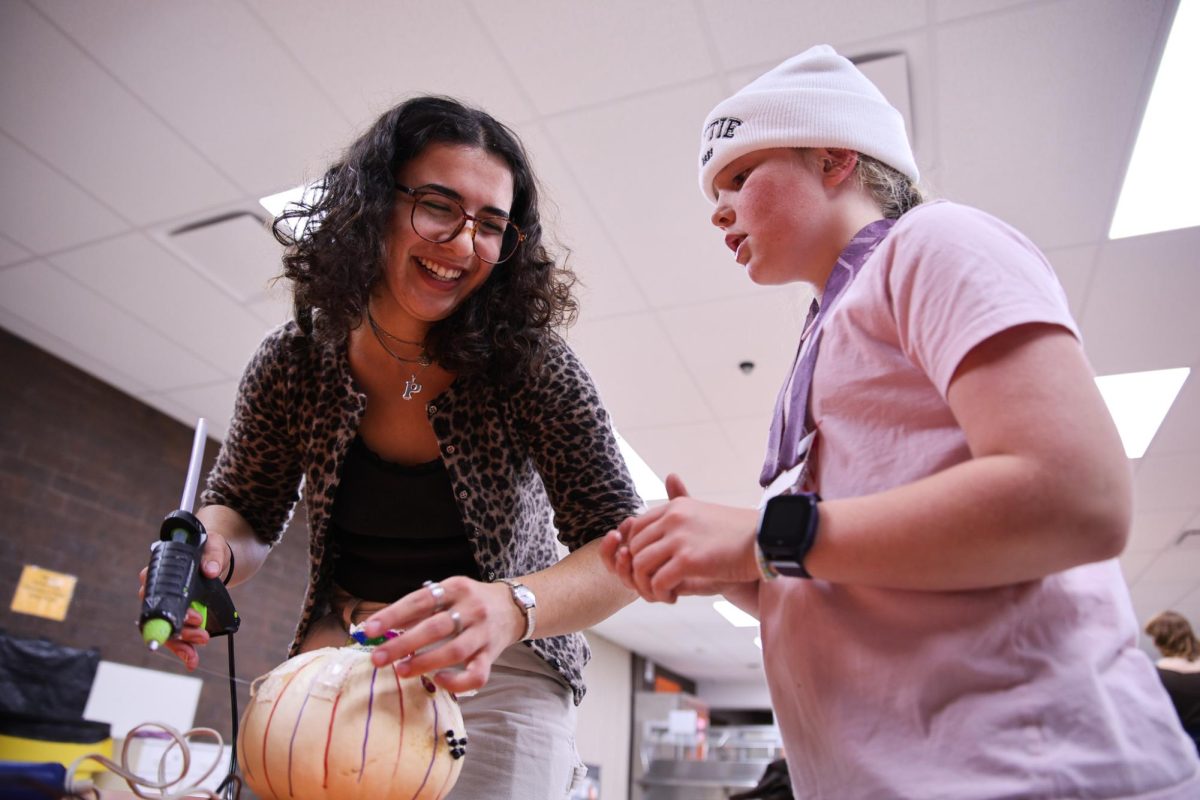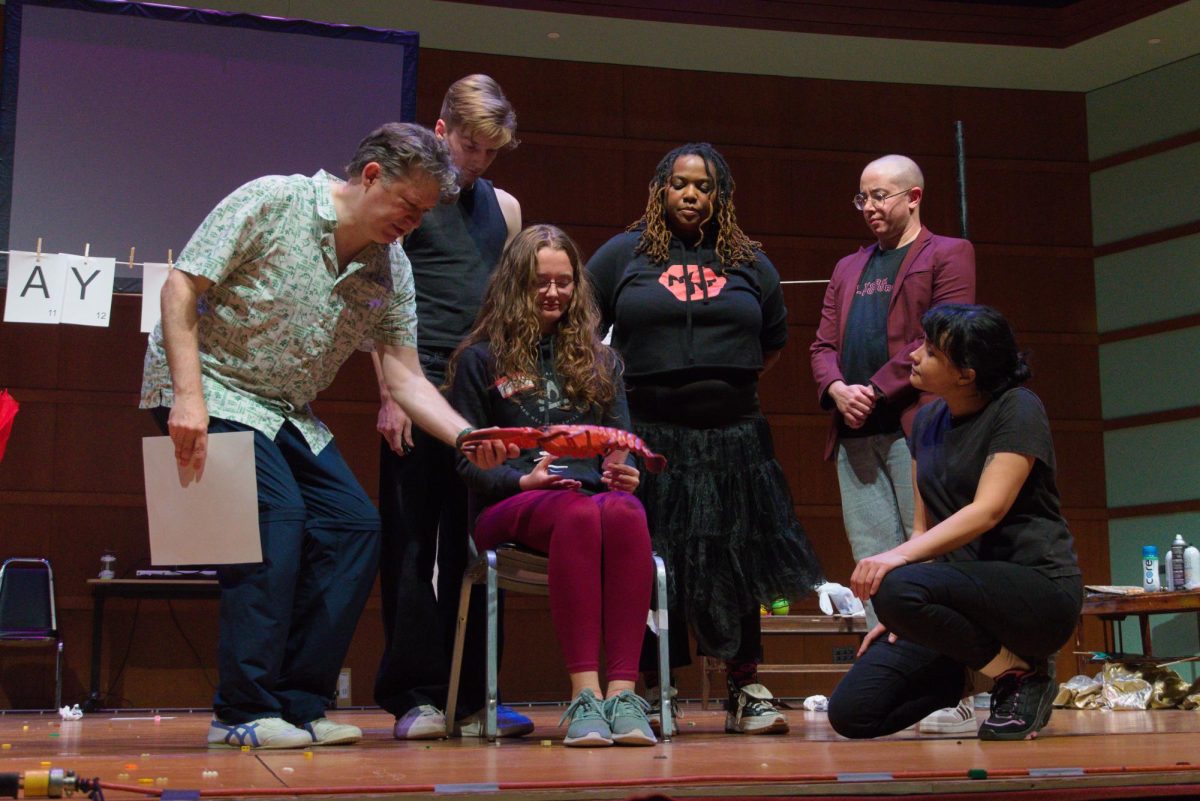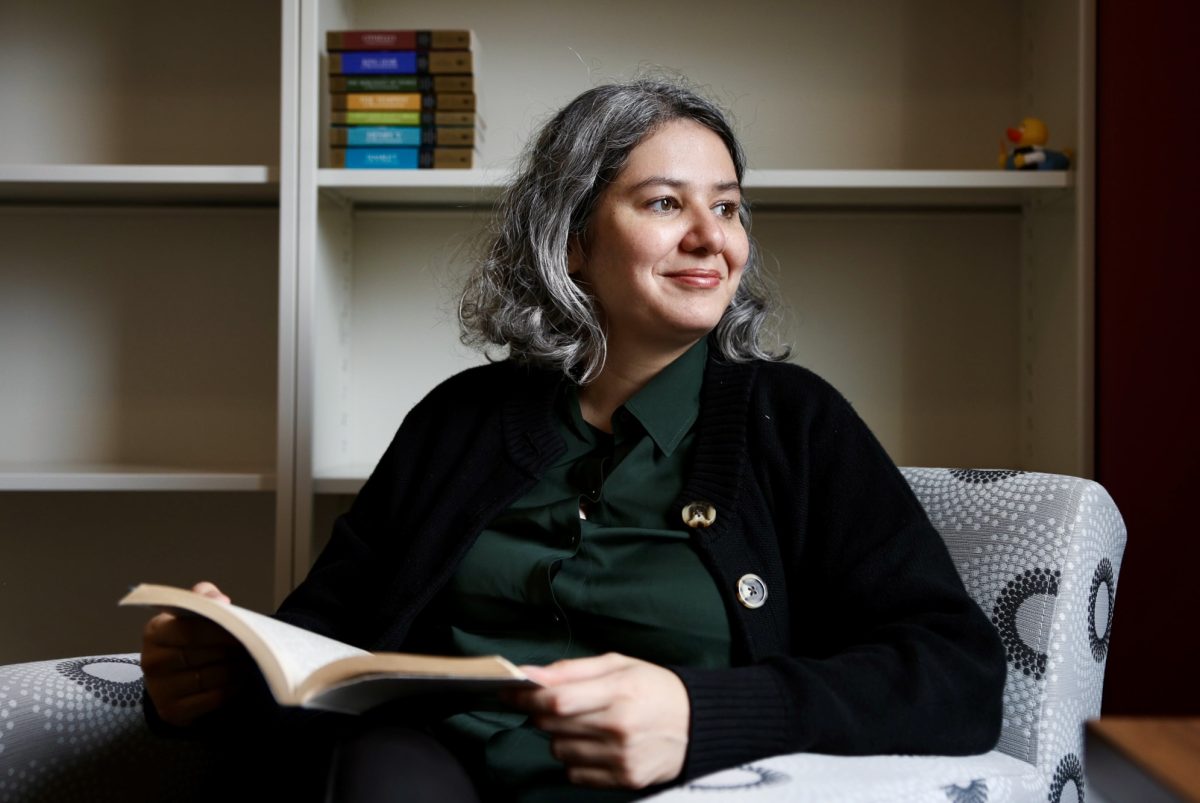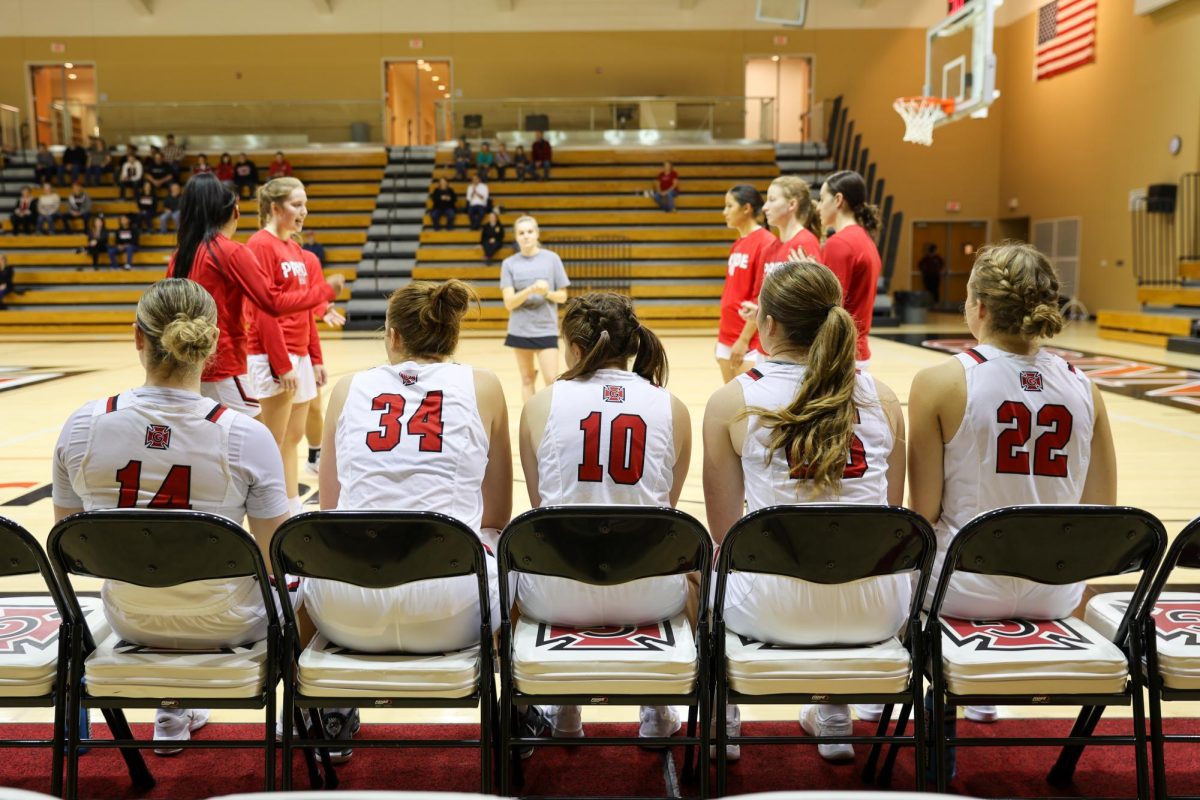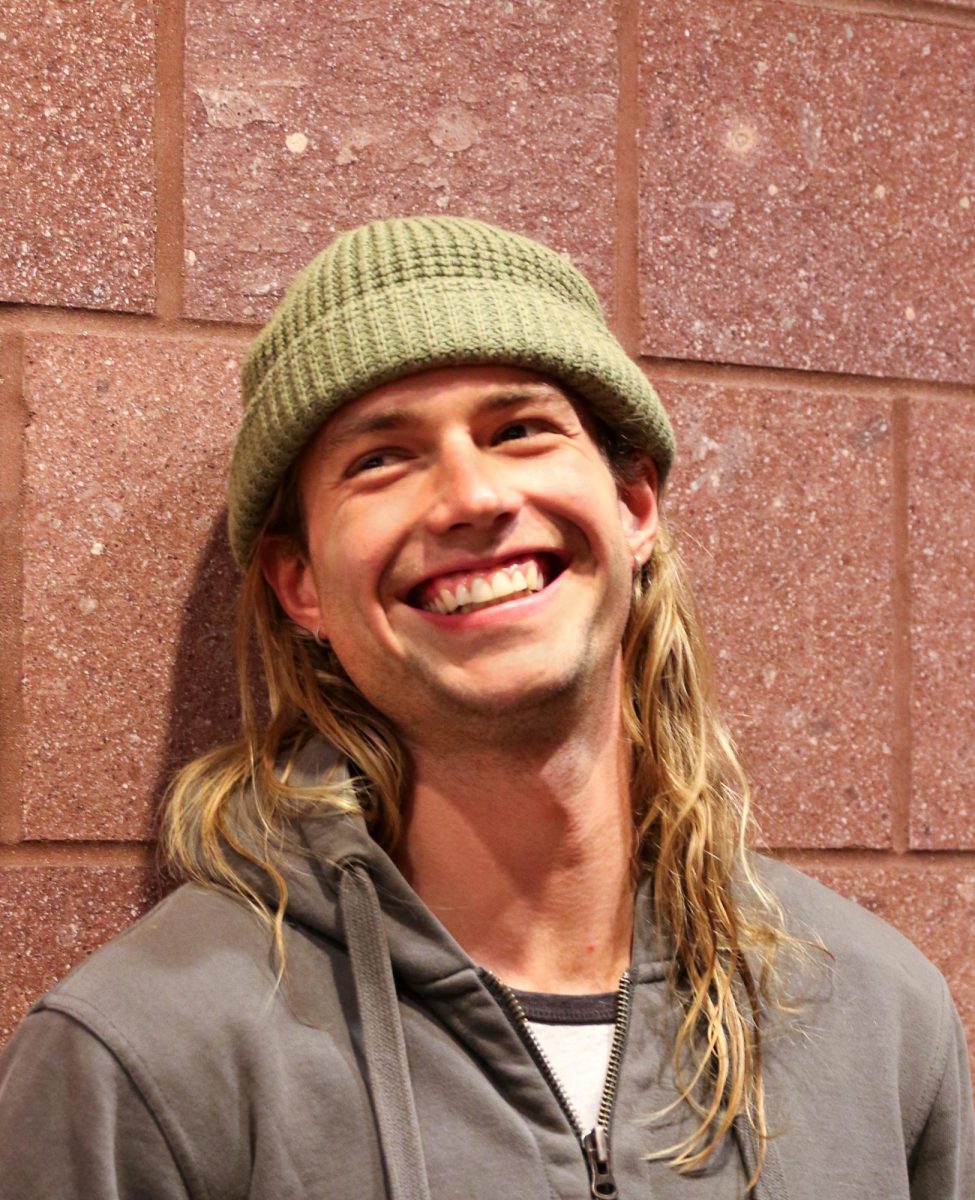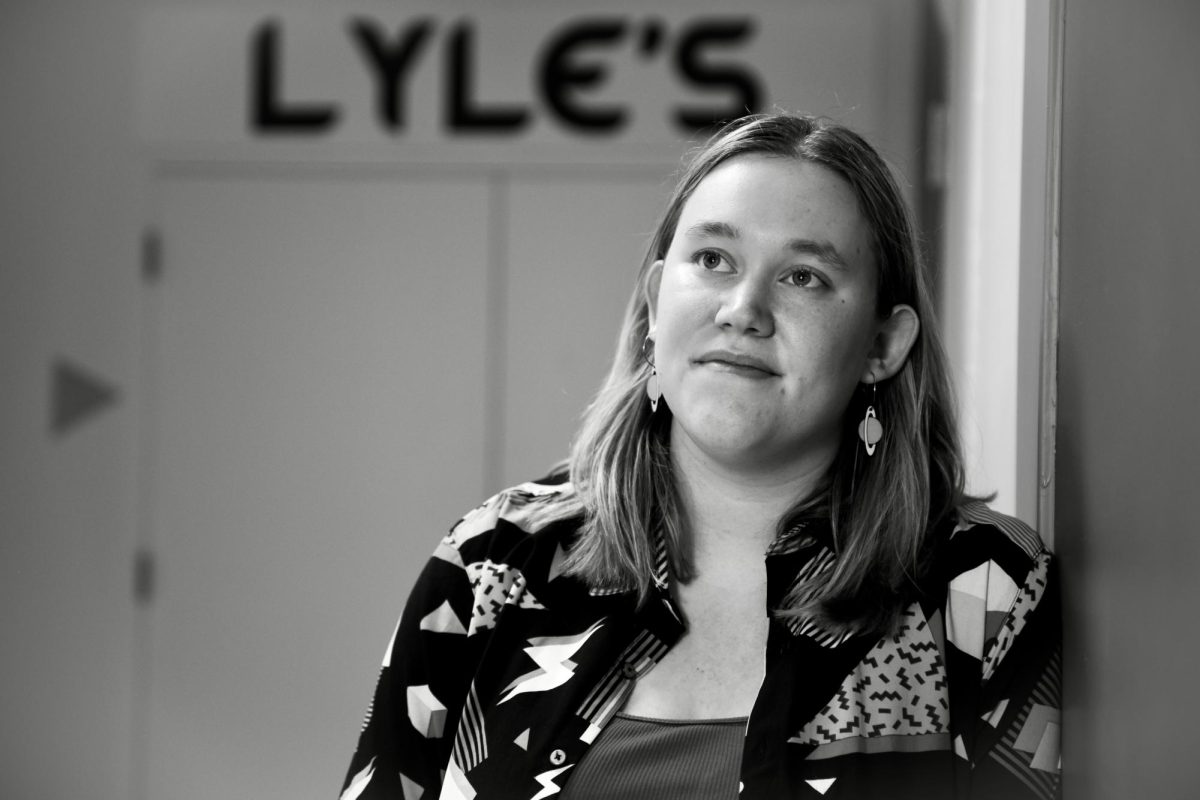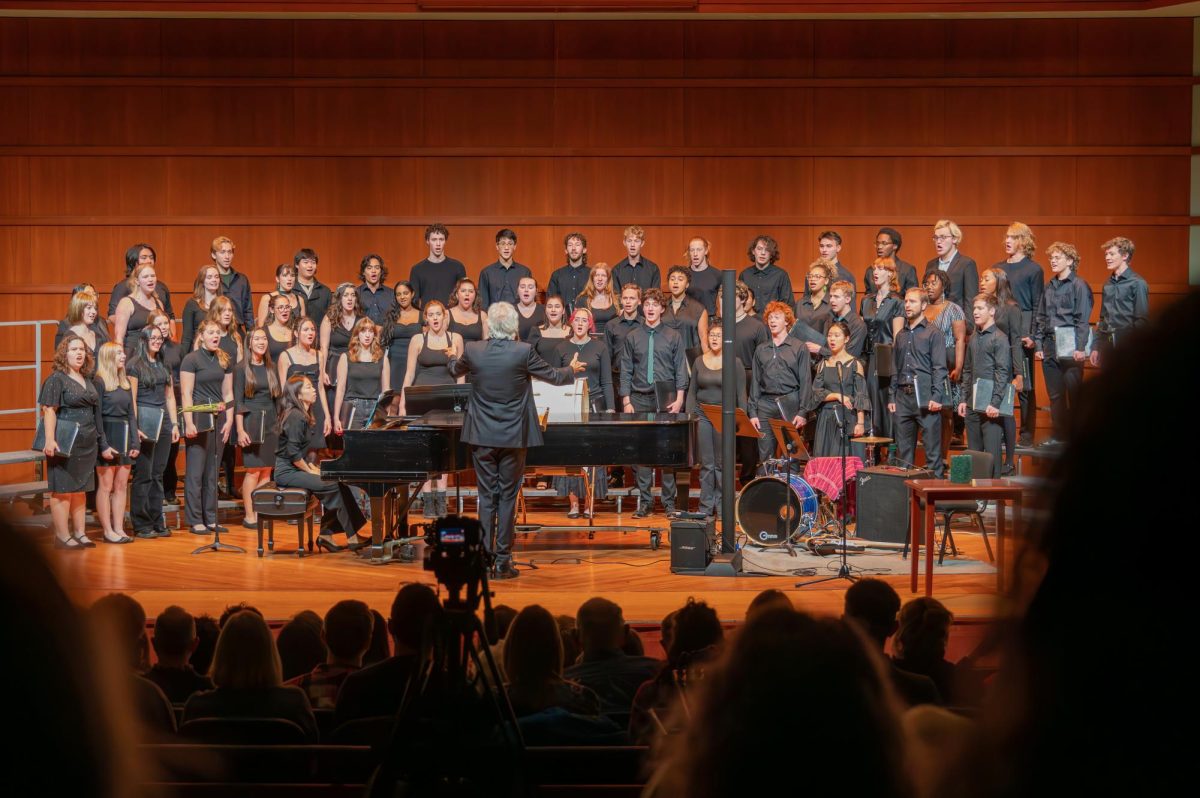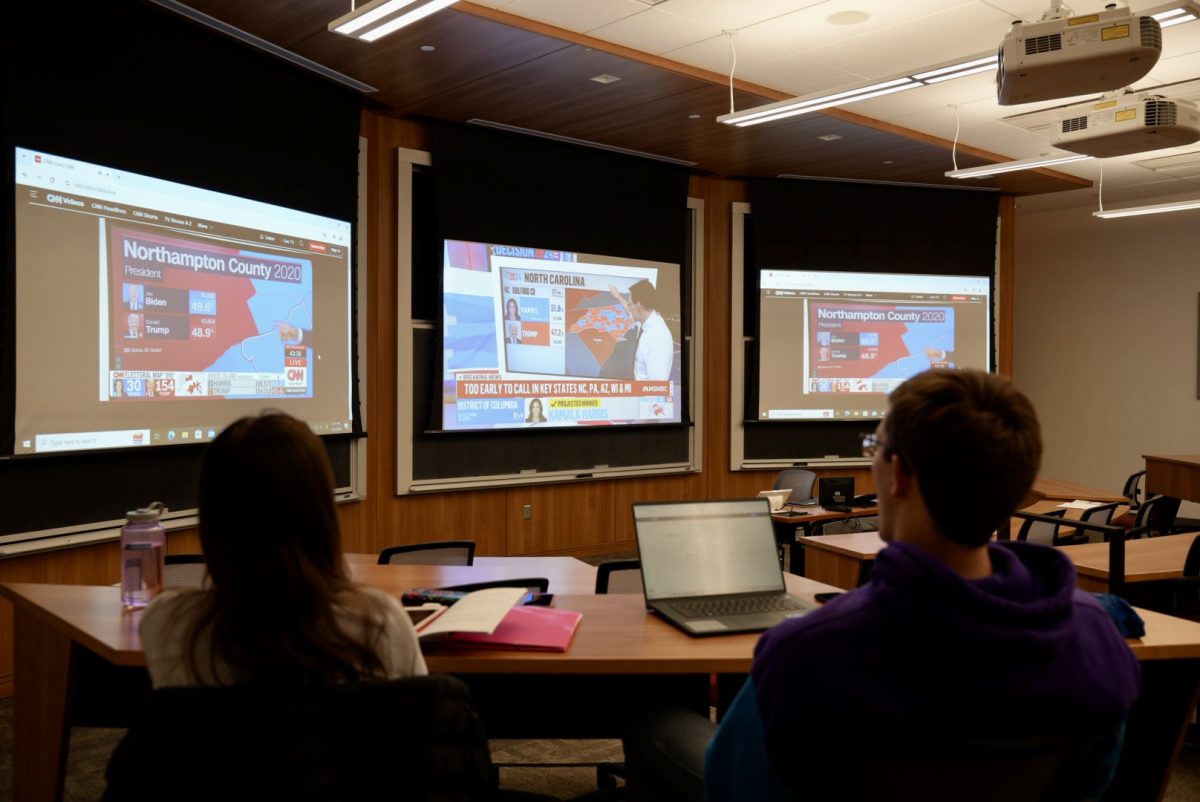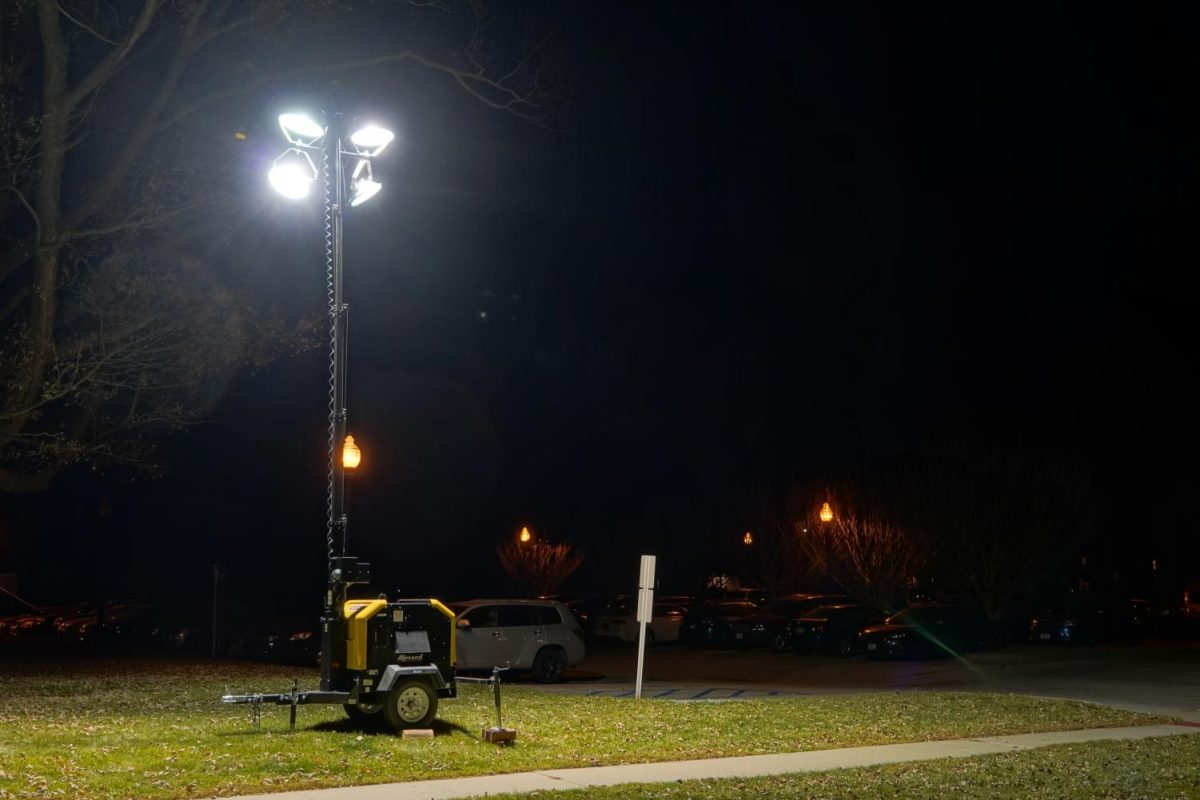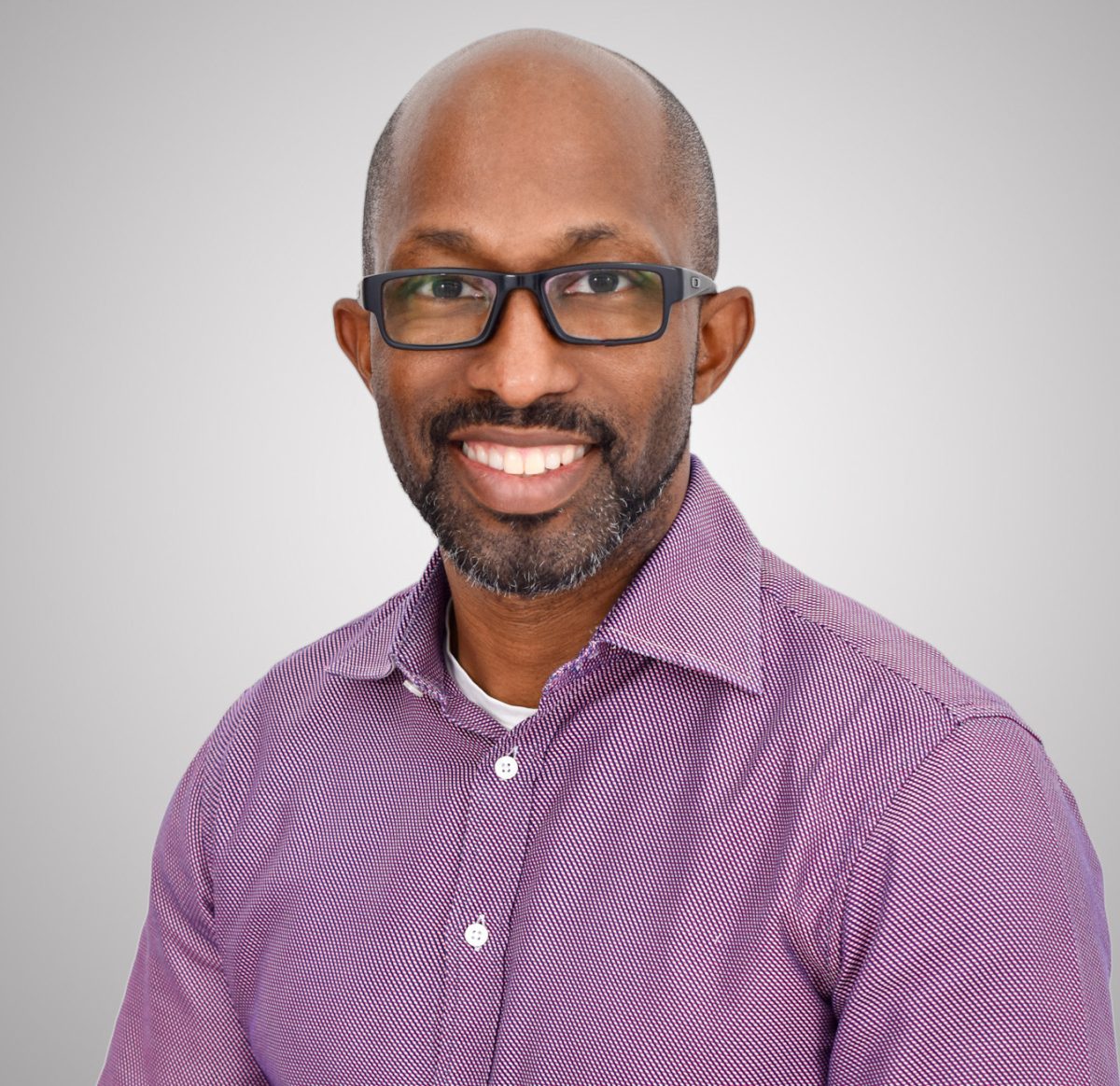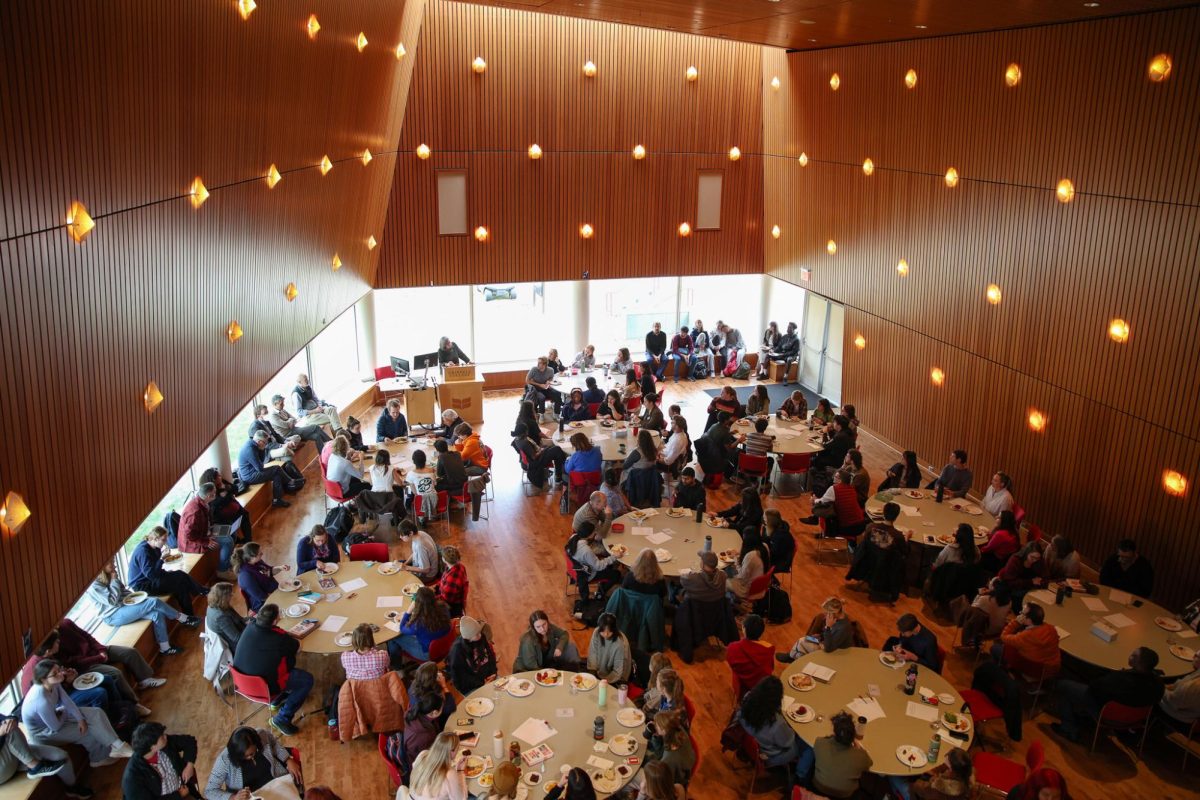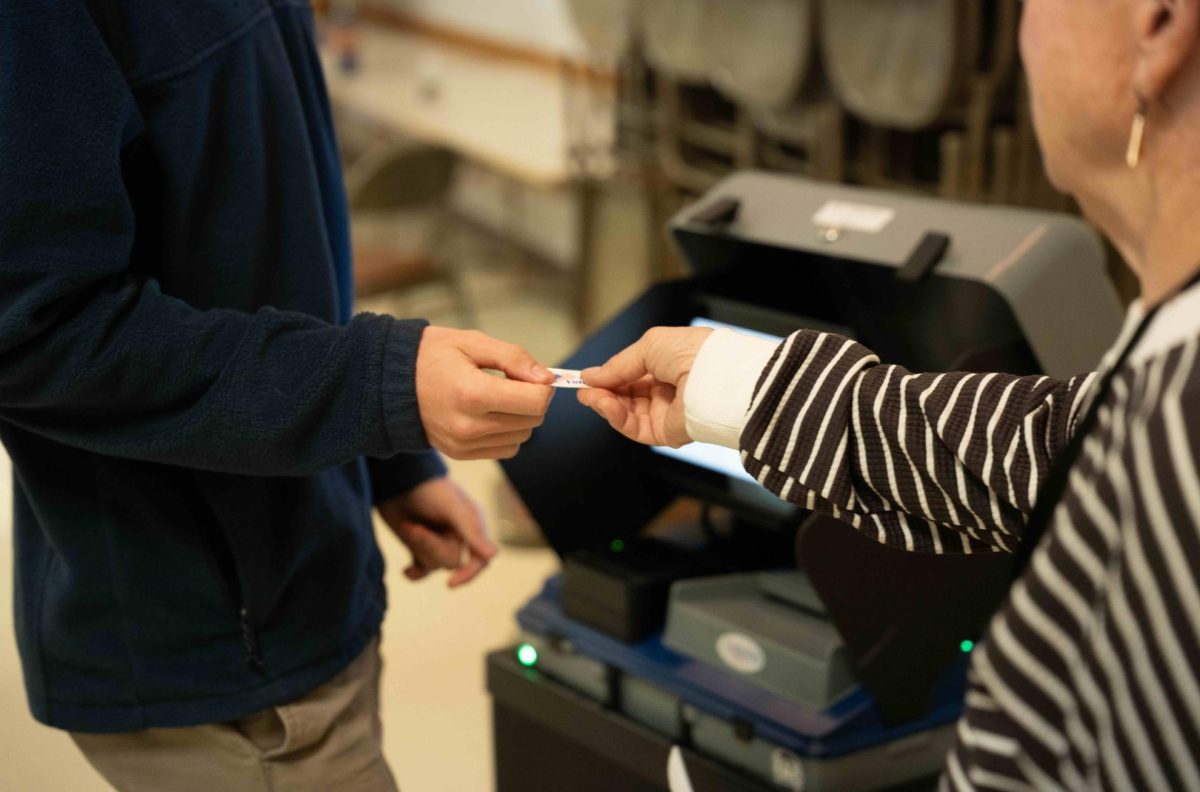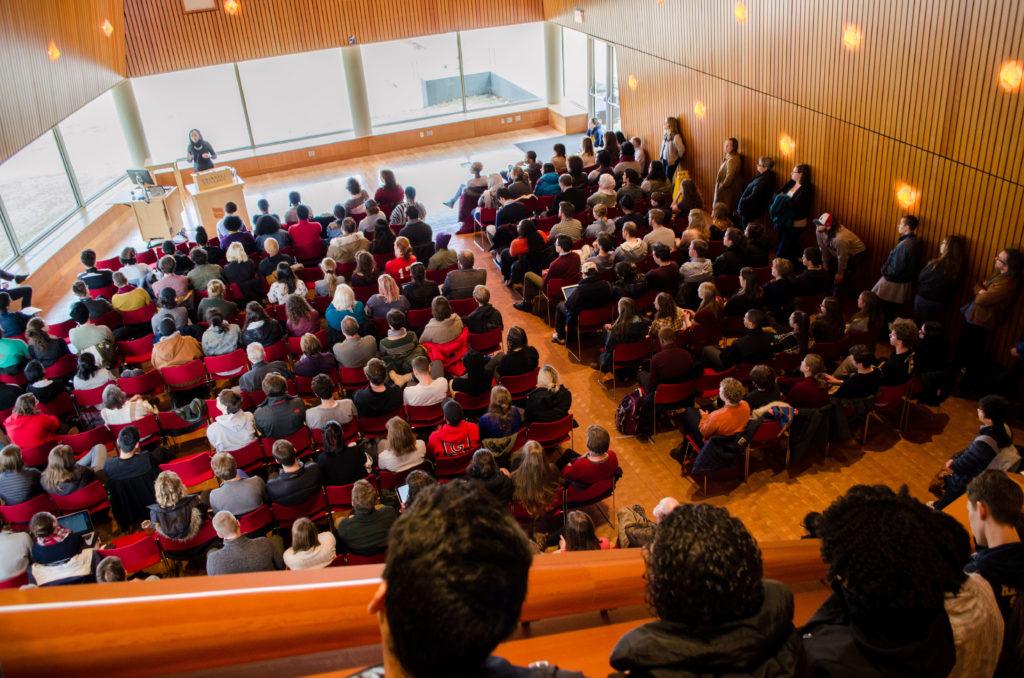
While the benefits of recent technological advances are frequently touted in the media and in society, such tech also has its drawbacks. This week, the Rosenfield Program dug deep into both sides of this coin with a symposium on technology and human rights. A diverse array of speakers came to campus to discuss technology and how it relates to everything from privacy to refugees to art.
The symposium kicked off Tuesday afternoon with Belarusian author Evgeny Morozov. His work is concerned with perceptions of the internet as an unequivocal force for spreading freedom throughout the world.
Morozov’s talk, entitled “Do We Have a Right to Our Data? Data Ownership and the Inequality Debate,” focused on the morality of data collection by Silicon Valley tech companies.
One of Morozov’s main points centered around the way targeted advertising works. He used the example of a person who may be considering becoming vegetarian.
“So if you’re contemplating becoming a vegetarian … that is something that can be inferred from your Gmail conversations, or from your chats or from your Google searches, right, a lot of that can be inferred about us just by looking at all sorts of data points that we leave online as we browse and as we communicate,” Morozov said.
The symposium entered into day two with a lecture by Mark Latonero, a professor at the University of Southern California.
Latonero’s talk focused on research he has done into the ways refugees use technology Europe. He said that while most people writing about refugees discuss the physical passage they take from place to place, narratives miss the technological aspect of the story.
“I started investigating what I would call a digital passage. This sort of passage, these technologies, the sweeter technologies that are mingling and are facilitating this movement again from the Middle East to Northern Europe,” Latonero said.
Latonero explained that while many people in the west might not associate smart phones with refugees, a variety of online tools provide invaluable service to refugees making their way through Europe.
Latonero cautioned that, while technology has become essential to the modern refugee, the data left behind in their digital footprints makes their privacy a growing concern. “These types of systems have a way of potentially stigmatizing an already vulnerable population,” he said.
Later that evening, the symposium continued with a talk by Sarah Labowitz ’04, who studied history as a student and has gone on to hold a variety of positions related to technology and human rights.
After Grinnell, Labowitz worked on labor rights in the fashion industry before getting a job working on internet freedom issues in Hillary Clinton’s State Department. Most recently, Labowitz served as the co-director of the Center for Business and Human Rights at New York University’s Stern School of Business, the only human rights-related organization at any business school in the country.
Labowitz’s talk, “The Robots are Coming: Technology, Work and Labor Rights” investigated the role that automation will play in the world in coming years.
She discussed a panel she was on at the end of last year in which other members spoke of the seemingly inevitable total automation coming to the labor force.
“… Moshe Vardi, a computer scientist at Rice University, argued in a 2015 paper that by 2045, machines will be able to do much of the work that humans do,” Labowitz said. “But I’ve spent a lot of time in a lot of factories, where humans work for very cheaply, doing things that robots are bad at.”
Labowitz went on to explain why the clothing industry in particular is difficult to automate.
“Fabric is flexible, soft, and has few edges. Constructing a garment requires integrating a large quantity of unpredictable variables ascertained primarily by touch. The substitution costs of robots for humans is especially high when workers in Bangladesh are willing to sew t-shirts for 68 dollars a month,” she said.
Labowitz concluded with a prediction that automation may result in the widening of a gap between rich and poor.
The keynote address of the symposium took place Thursday morning at Convocation. Opal Tometi, the executive director of the Black Alliance for Just Immigration (BAJI), and a co-founder of the Black Lives Matter movement, spoke on “The Role of Technology in the Black Lives Matter Movement.” Recording was not permitted at this talk so no exact quotes are available.
Tometi began her talk by asking the audience if they remembered where they were when George Zimmerman, who had been on trial for the murder of 17-year-old Trayvon Martin, was acquitted. That event was a powerful catalyst for Tometi, because Martin reminded her of her own younger brother and the possibility that he could be killed simply for being a black teen.
Shortly after the acquittal, Tometi read a Facebook post by Alicia Garza, another founder of the Black Lives Matter movement, in which Garza first used the phrase “Black Lives Matter.” From there, Tometi, Garza and other activists began to organize the movement.
One of the most striking aspects of the movement, for Tometi, was the tools being used. Different activists in different time periods have used whatever tools are available to them, and Black Lives Matter is no different: much of the organizing going on, including arguably the inception of the movement through Garza’s Facebook post, was happening online.
While Tometi praised the role technology has held in the Black Lives Matter movement, she expressed concerns over privacy issues associated with modern technology. In fact, Tometi was recently been forced to throw away her Amazon Alexa following reports that they have the ability to record your daily life even when they are not in use.
The final talk of the Symposium was an Artists@Grinnell Gallery Talk in Faulconer with Joan Linder ’92. More information about that talk can be found on page four.
The symposium will formally come to an end Friday Night with a Human Rights Wikipedia Edit-a-thon in the basement of Burling from 4 to 8 p.m. Students interested in participating are asked to create their own Wikipedia account prior to the event.
Professor Sarah Purcell ‘92, director of the Rosenfield Program, thought that the different talks intersected in a valuable way with regards to the benefits and drawbacks of technology in a human rights context.
“There are a lot of liberating qualities for human rights of various technological applications and then also ways that human rights can be imperiled in brand new ways that no one ever thought of before,” said Purcell. “And so to see the way that those two things go hand in hand and to really unpack that relationship I think is really compelling.”

